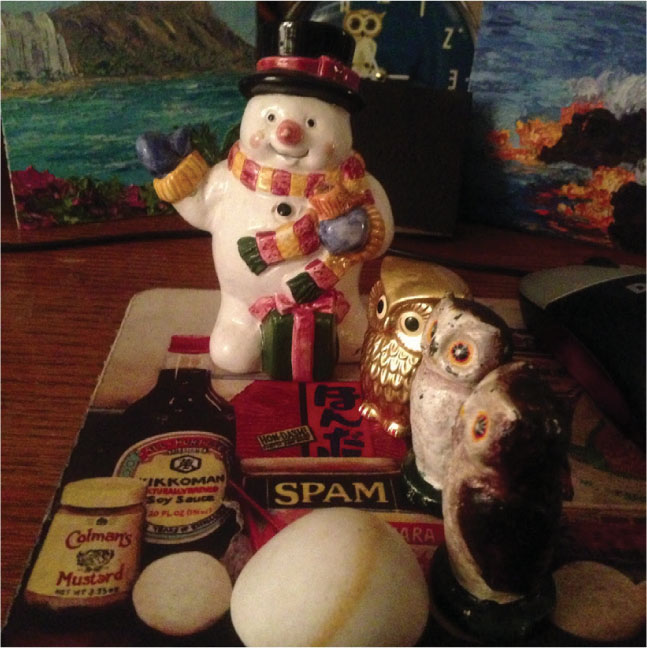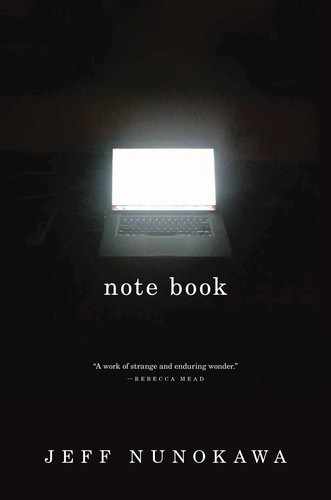4196. Beyond Display
Not that the reader is to suppose in Southey a showy
master of rhetoric and colloquial sword-play, seeking to
strike and to dazzle by his brilliant hits and evasions. The
very opposite is the truth. He seeks, indeed, to be effective,
not for the sake of display, but as the readiest means of
retreating from display, and the necessity for display.
De Quincey, “Literary Reminiscences”
I wonder how much the desire to dazzle is actually a forgotten hunger for a calmer kind of human contact, simmered beyond recognition by the fear that no one really likes what’s really raw. Some of the best times I have with you are when I’m really tired, and my whole fleet of rhetorical devices and other vessels for fancy flying pretty much grounded: those times when I just want to be with you, and I’ve got nothing to offer but that wanting to be with you; those times when all passion for show is spent, and you seem happy enough to see me even without the finery or parade (Jane Austen); when what swaggers and struts or otherwise acts all superb sits silent, on the sideline; those times when you seem content just to take me as I am (Joni Mitchell).
And then, once we’re all grounded and good, frantic ingenuity (Donald Davie on G. M. Hopkins) all forgotten; well, then—it’s yet once more wheels up time, big time (this time, real time) and—whoa!—it’s like we’re walking on air (not putting on airs)—
Note: “High there” (Gerard Manley Hopkins, “The Windhover”).
4198. “but yes, of course, I loved the … evenings of New York”
The very smell of New York … tracks you down in the
heart of the most harmonious and familiar towns, to
remind you there is at least one place of deliverance in the
world, where you … can finally lose yourself forever.
Camus, “The Rains of New York”
But yes, of course, I loved those nights I got lost in New York. If I hadn’t loved them so much, how could I have ever left them? How could I ever hope to find them again (in my dreams; under a different dispensation of dearness; at a different pace of passion) if I had lost myself forever in them?
I guess it’s like any town that gets too damn hot for you to stay. You have to get away for a while, for good, though its mysterious royalty has scarcely begun to shine. (Camus, “Herman Melville”)
It’s the only way to cherish the memory of those nights. It’s the only way you’ll ever find something close enough again.
I know that.
“But
Note: I would be lying if I said I didn’t miss that other life, I loved it so” (E. B. White, “Time Past, Time Future”).
4200. “Come live with me, and be my love”
Christopher Marlowe
Wow. That may be the craziest proposition I’ve ever heard in my life. I think it may be even more out there in some outer space than my youngest nephew’s view of the universe. (His head has all kinds of unusual thoughts. It’s like a stadium, filled beyond all capacity with angels and aliens.)
Come live with me, and be my love. Is he on drugs? Does the word tomorrow ring a bell? (He must think there’s no tomorrow: no black forests of death, disenchantment, dismemberment, division, derision, delusion, and divorce, just beyond his green-shaded thoughts.)
Come live with me, and be my love. He’s high, right? At this late date, does anyone sober have the moxie to move in on someone this way? It would be like looking in the rearview mirror, by the full light of day, and not flinching.
Come live with me, and be my love. Can you seriously imagine saying this seriously to anyone, ever (or ever again)?
I hope so.
Note: “all the pleasures prove” (Christopher Marlowe, “The Passionate Shepheard to His Love”).

The forests are filled with them, and they cry when they bleed. And though they cry in various languages—quid miserum, Aenea, laceras (Virgil); Perché mi schiante? (Dante); et cetera (Ariosto, Tasso, Freud)—basically, these trees of tears all come down to the same root: why do you hurt me?, they ask of the man who tears them.
Not that life was so great before the tearing—I mean, having your body turned into a tree (especially, as is often the case, after it has been mangled) can’t exactly be anybody’s idea of good times, but at least you’re still standing (even if a little swollen), and maybe, as early as later today, you’ll even provide some comfort and joy for an overheated traveler. Even the names of certain trees sound the secret of soothing:
“eucalyptus”
(From the Greek, well-hidden)
(James Merrill, “Last Mornings in California”)
And if some mornings you wake up, feeling a little hollow and haunted; set up for the Fall; if some mornings you wake up feeling stilled and stunted and sort of bled out, just think of your colors (the ones that don’t run)—laved past bleeding (James Merrill, “Last Mornings in California”). Then maybe you can move a little, and then maybe a lot, and then maybe a whole Lot—like an uprooted forest in some play, returning home in a trick against the odds, like the spring that follows from a fall; like the light of the sun passing over a cover of leaves—we’re moving, we’re moving …
Note:
I think that I shall never see
A poem lovely as a tree.
(Joyce Kilmer, “Trees”)
4231. The Importance of Being Alone
To be free is often to be lonely.
Auden
—sometimes it feels like it’s nothing, but. And you know what? I’m fine with that. Like other single people I know, I need a lot of freedom to maneuver. Personally, I don’t mind being a little lonely. I don’t know how else to travel light enough to get to the places I need to get to on time (places where I feel needed; places, old and new; destinations I never really know in advance—like a heartbeat or a heartbreak, the need is actualized as soon as it’s announced).
There’s probably something pretty selfish and sad at the center of this schedule, but what with all the flight changes and missed connections that all of us (single or otherwise engaged) have to deal with in order to touch down on time, I currently lack the leisure to sort all that out.
Meanwhile, we solitary players (I guess we’re all solo for at least a leg or two of the itinerary) just have to hope that our friends have enough faith in us to feel that even when we’re just phoning ourselves in, we’re doing our best to do more.
Note: “to aery thinness beat” (Donne, “A Valediction: forbidding mourning”).

4232. “She was never wholly admirable”
Somehow it was her disaster—her disgrace. It was her
punishment to see sink and disappear here a man, there a
woman, in this profound darkness, and she forced to stand
here in her evening dress. She had schemed; she had pilfered.
She was never wholly admirable. She had wanted success.
Virginia Woolf, Mrs. Dalloway
Forced by what force, I wonder? What is it that keeps us (some of us, at least) keeping on keeping up our appearances, even when sinking and disappearing, or just staying in bed, seem like perfectly preferable options? I guess because people expect to see us—expect their breakfast or our brightness, no matter how same-old, same-old, our sunny-side up. And I guess what that means is that the same susceptibility to Society that will keep some of us from ever being wholly admirable is the best chance the same some of us have of being at least a little admirable, as well.
Note: “It seems a shame not to throw a fried egg on that” (my Mother, one morning, last March).

Often, almost nightly, throughout the spring of 1959, I
had feared for my life. Solitude is the playfield of Satan. I
cannot describe the depths of my loneliness and distress.
Nabokov, Pale Fire
While I share certain features of the condition and conviction confessed by the speaker here—surely so at this shady hour—I am no less struck by the differences between his state of mind and my own. It is true that I, too, have been and, moreover, continue to be, “almost nightly” visited by concerns vis-à-vis my life—but, in my own case (as I have already implied), they were hardly confined to the spring of 1959. (I was the barest of infants in the spring of 1959, little more than six months old, and while it is perfectly possible that I entertained fears about my life at that point in time, I remember them no better than I do the waning days of the Eisenhower administration, during which they would have occurred, if indeed they did occur.) Moreover and more importantly, in my own case, these nocturnal fears are rather more fears of my life than fears for it. (Make of these distinctions what you will: I am cogitating at the speed of flight, here, and cannot destroy my momentum with explanation.) And while I join the speaker in his conception of solitude generally, and especially that species of solitude that comes during the dead of night, as a kind of playfield, I have, in recent years, grown a little more inclined to survey that playfield as something a bit more felicitous and a bit less frightening: grounds populated by metaphorical jungle gyms and swing sets and seesaws and the like, ever present perhaps, but too oft overshadowed by schoolyard bullying evil and its baffling mirrors (Adorno: in fascism the nightmare of childhood has come true); too often bedeviled by unhappiness and its infinite apparatus. Finally, unlike the speaker, I am not aware of any difficulty describing the depths of my loneliness and distress. That I can spell out in my sleep.
On the other hand, you have to be pretty wide awake to parse out the grammar of ascent by which you figure your way out of them.
Note: “My aim is not to demystify myself, which would bore others and cause me despair” (Harold Bloom, “The Breaking of Form,” Deconstruction and Criticism).

Nick (very quietly): I think I understand this.
George (ibid): Do you?
Edward Albee, Who’s Afraid of Virginia Woolf?
No, actually. He doesn’t understand this. Oh, of course he gets the obvious play—an aged in woe, liquor-covered, wicked-funny couple (utterly witty, much as Macbeth and his Lady were upwardly mobile) make up a child to love as their own.
What he doesn’t understand is what really happens once you really get started pretending that there are kids around you who are sort of your own: if you’re in Earnest; if you make believe right, you really do bring a new person into the equation.
That person is you.
Note: “For unto us a Child is born” (Isaiah 9:6).
